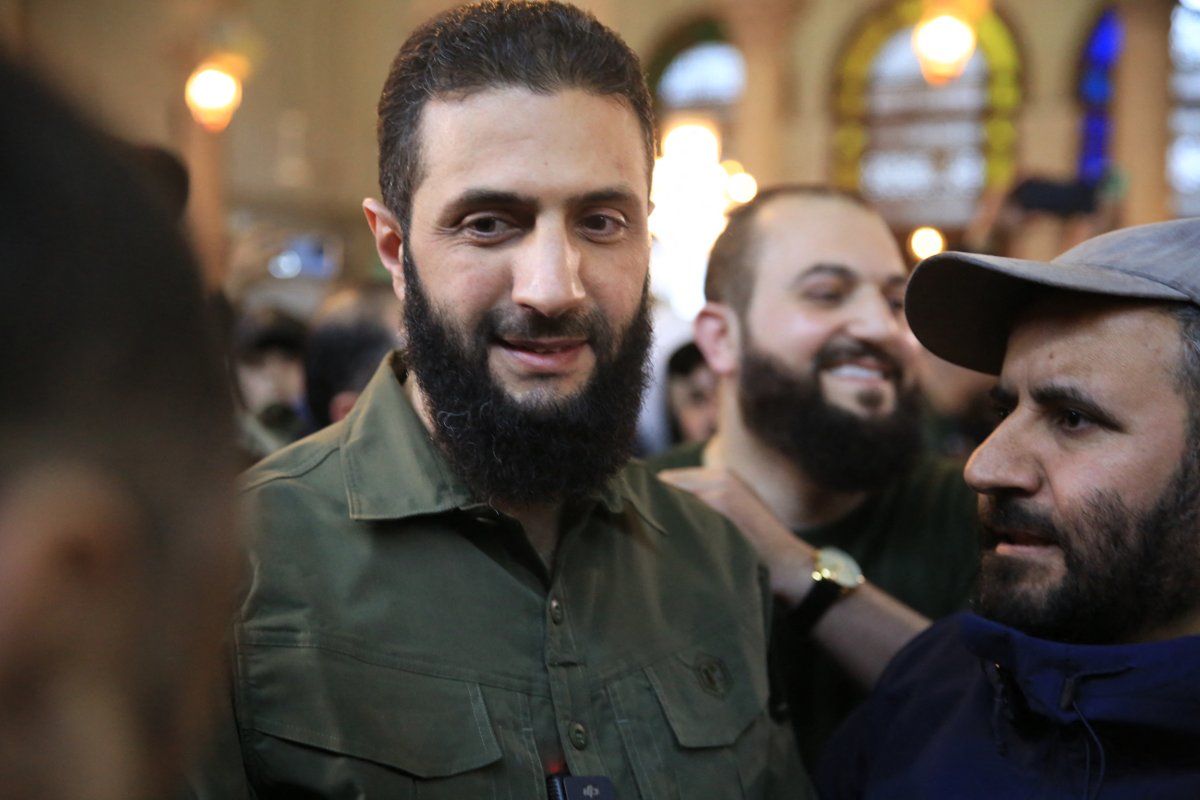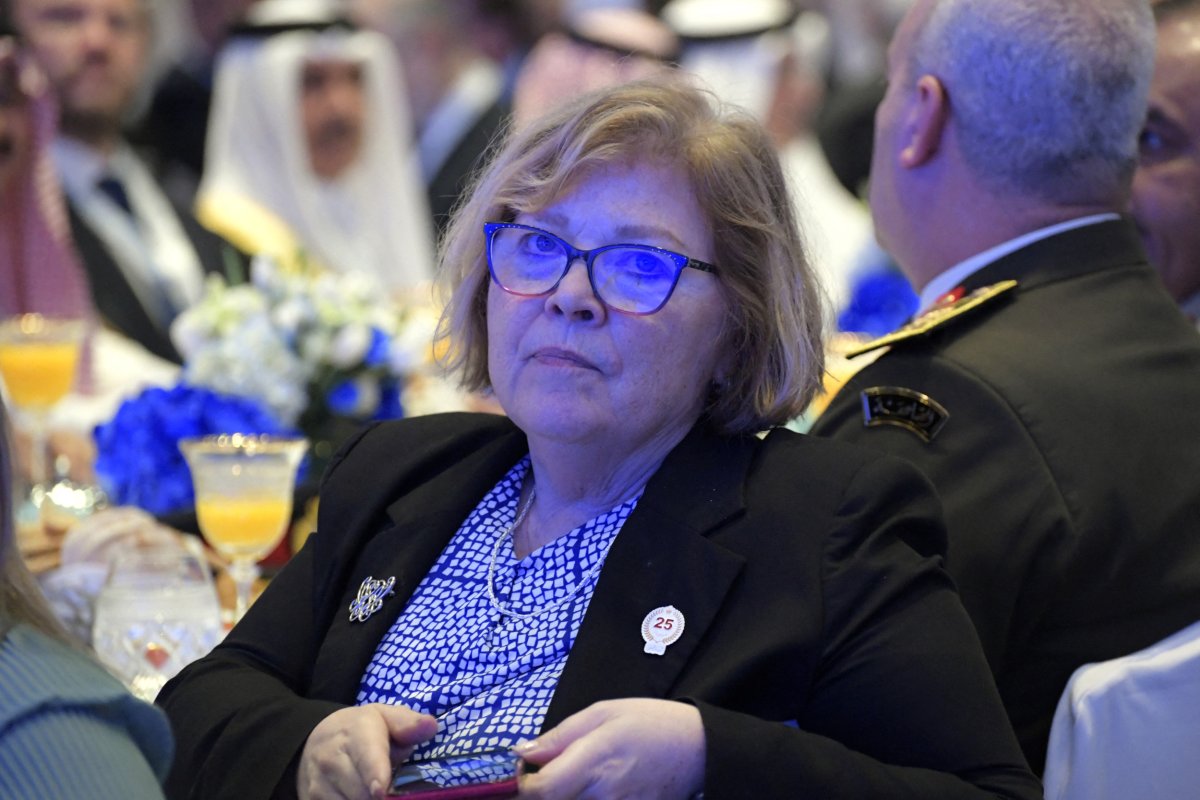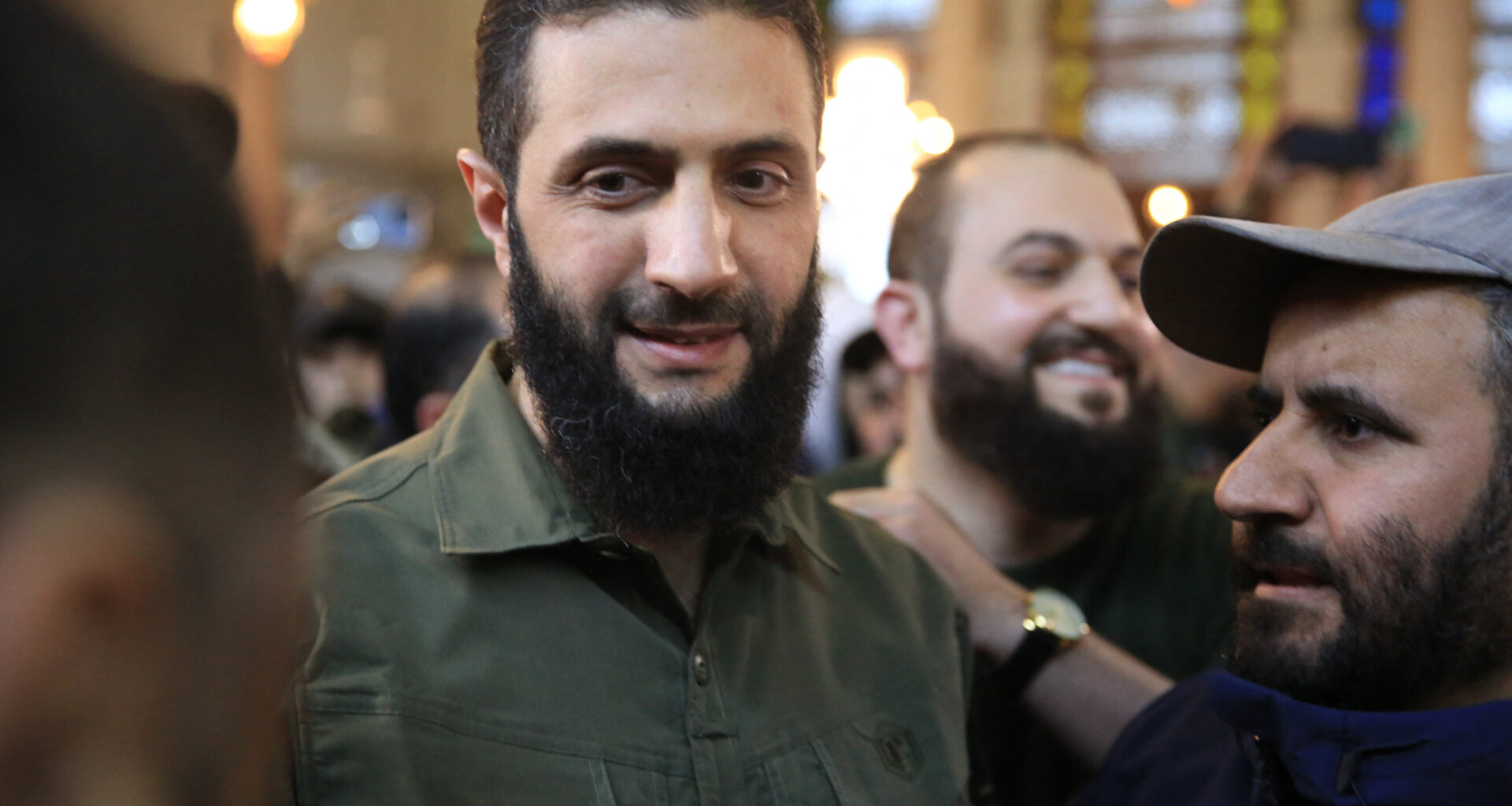The United States announced it will remove the hefty $10 million bounty on the head of Ahmed al-Sharaa, formerly known as Abu Mohammed al-Golani, after he led rebel forces to a stunning victory over the Assad government and claimed Syria.
What to Know
U.S. Assistant Secretary of State for Near Eastern Affairs Barbara Leaf met with Sharaa this week after his group Hay’at Tahrir al-Sham (HTS) led rebel forces to victory over Syrian President Bashar al-Assad who fled the country as the rebels took Damascus earlier this month.
The meeting involved an agreement that sees the U.S. remove the hefty bounty on Sharaa’s head while he works with the U.S. to stamp out any potential terrorist group activity. He will ensure that such groups are not allowed to “post a threat inside of Syria or externally, including to the U.S.” and its regional partners.
The agreement is part of Sharaa’s effort to reinvent himself and his country following his capture of the capital city. He dropped the Golani name, which may be seen as a relic of his rebel and jihadist past and started using his birth name in official communications.
Sharaa joined Al-Qaeda shortly before the 2003 U.S. invasion and fought for three years before U.S. forces captured and imprisoned him. Upon his release in 2011, he created Nusra Front as a branch of Al-Qaeda and joined the Syrian Civil War, according to the Associated Press.
He would later cut ties with Al-Qaeda and merge with other groups to form HTS. The U.S. listed him as a “specially designated global terrorist” in 2013 and added a $10 million bounty in 2017 for information leading to his capture.
The State Department directed Newsweek to Leaf’s press briefing in response to a request for comment on Saturday.

Supporters welcome the leader of Syria’s Islamist Hayat Tahrir al-Sham (HTS) group that headed a lightning rebel offensive snatching Damascus from government control, Abu Mohammed al-Golani on December 8. The United States announced it will…
Supporters welcome the leader of Syria’s Islamist Hayat Tahrir al-Sham (HTS) group that headed a lightning rebel offensive snatching Damascus from government control, Abu Mohammed al-Golani on December 8. The United States announced it will remove the hefty $10 million bounty on the head of al-Sharaa, formerly known as al-Golani, after he led rebel forces to a stunning victory over the Assad government and claimed Syria.
More
Aref Tammawi/AFP via Getty Images
Why It Matters
The U.S. is actively working with the new Syrian government to help shape the country in the wake of the Assad regime’s collapse. Leaf told reporters in a digital briefing following her meeting with Sharaa that Syrians “have a rare opportunity to rebuild and reshape their country.”
“No one understands the challenges ahead better than they do themselves,” she said. “I appreciated hearing directly from Syrian civil society activists, members of different communities, and other Syrian voices about their vision for the future of their country and how we can help support them.”
After the Taliban retook Afghanistan following the U.S. withdrawal from the country in 2021, a branch of the Islamic State (referred to as ISIS or IS) known as ISIS-K or ISKP, in reference to the Khorasan province, emerged and proven an especially capable force that has claimed credit for attacks in Iran and Russia, along with a slew of other lethal operations.
Leaf referenced ISIS in her concerns about the role that the Kurdish-led Syrian Democratic Forces (SDF) plays in combating terrorist groups in the region. She stressed that the U.S. is seeking to ensure that nothing will “distract from the really critical counter-ISIS fight and the critical role that the SDF has in managing a foreign terrorist fighter set of detention facilities as well as al-Hol Camp while Damascus and the SDF hopefully begin a dialogue themselves.”

U.S. Assistant Secretary of State for Near Eastern Affairs Barbara Leaf is seen in Manama on December 6. Leaf met with Sharaa this week after his group Hay’at Tahrir al-Sham (HTS) led rebel forces to…
U.S. Assistant Secretary of State for Near Eastern Affairs Barbara Leaf is seen in Manama on December 6. Leaf met with Sharaa this week after his group Hay’at Tahrir al-Sham (HTS) led rebel forces to victory over Syrian President Bashar al-Assad who fled the country as the rebels took Damascus earlier this month.
More
Mazen Mahdi/AFP via Getty Images
What People Are Saying
Leaf during the press briefing told reporters: “I also met with representatives of the interim authorities, including Ahmed al-Sharaa, to discuss the set of principles agreed upon by the U.S. and our regional partners in Aqaba. We welcomed positive messages, and we will be looking for progress on these principles in actions, not just words.”
She added: “I also communicated the importance of inclusion and broad consultation during this time of transition. We fully support a Syrian-led and Syrian-owned political process that results in an inclusive and representative government, which respects the rights of all Syrians, including women and Syria’s diverse ethnic and religious communities.”
“For American diplomats, our foremost responsibility is to keep U.S. citizens safe and secure anywhere in the world. Even though the – even throughout the Assad regime years, the U.S. Government never stopped our intensive efforts to ascertain the fate of those detained or missing in Syria, such as Austin Tice and Majd Kamalmaz.”
What Happens Next
The U.S. will continue to work with the new Syrian government to help it carve out its identity in the Middle East. The goal, based on Leaf’s answers about the involvement of Iran and Turkey, is to ensure that the U.S. has a reliable partner in the region who can help assist in various conflicts in the coming years.
“Iran will have no role whatsoever, and it shouldn’t, frankly,” Leaf said, noting that Iran has displayed “decades now of the most predatory and destructive behavior and presence in Syria.”
“I think what – certainly what our government would like to see is a Syria that can stand on its own two feet, that can regain, like its neighbor Iraq, a full measure of sovereignty over its own affairs,” she added.
